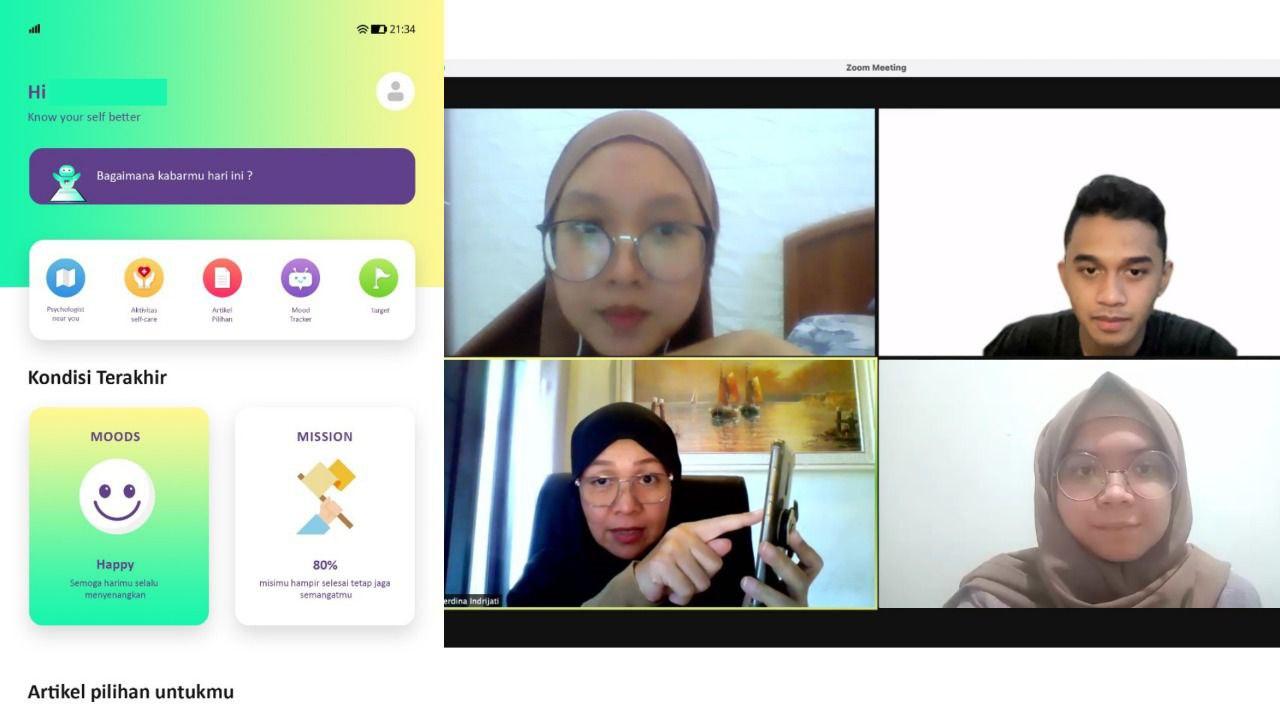UNAIR NEWS – The growing stigma about mental health often makes people reluctant to consult a psychologist. It can bring a negative impact on the high rate of depression in Indonesia. This condition inspired three Universitas Airlangga students to create a self-care app based on Artificial Intelligence (AI). This innovation also supports the achievement of the third SDG, Good Life and Well Being, supporting welfare for all ages.
Nidya Almira Xavier Herda Putri, Muhammad Fauzan Prawira Arya and Elva Chusniyatuzzamrodah, from the Class of 2018 Faculty of Psychology, are the members of a Student Creativity Program-Invention (PKM-KC) team from Universitas Airlangga. They proposed “SEJATI: Self-Care App based on Artificial Intelligence as Effort to Reduce Depression Risk in Adolescents”.
With the same backgrounds, the three admitted that they are interested in psychology, especially mental health, which has been widely discussed lately. “Mental health issues are getting a lot of attention, so social media accounts have started to discuss it. Even so, there is still a lot of existing mental health stigma in the community, and in the end, people tend to be afraid or embarrassed to see and consult with experts,” explained Nidya.
Regarding the intended age target, Nidya explained that adolescents are an age group that is prone to mental disorders, especially depression. “And we are focused on reducing the risk of depressive disorders, considering that depression is a mental disorder with the highest prevalence in Indonesia, causing great dangers,” she added.
Nidya and the team tried to overcome this problem with a self-care app called “SEJATI” which users can use independently. Their app will have features in the form of suggestions for self-care activities, mental health articles, mood trackers, and chat features with Eno, a sophisticated chatbot that distinguishes SEJATI from other apps.
The Eno chatbot as the main feature is an artificial intelligence that can listen to stories from users. “We made Eno one of the main features because we hope that this chatbot can be a good listener for its users so that users always felt heard anytime and anywhere,” said Nidya.
Thanks to SEJATI’s innovation, the PKM Team, supervised by Herdina Indrijati, M.Psi, a lecturer from the Faculty of Psychology, managed to get funding from the Ministry of Education and Research and Technology of the Republic of Indonesia. “We hope that the app prototype can be developed and used optimally by the wider community. In the long term, this app is expected to reduce the mental health stigma and make its users feel safe and comfortable with their mental condition,” she concluded. (*)
Author: Stefanny Elly
Editor: Khefti Al Mawalia





